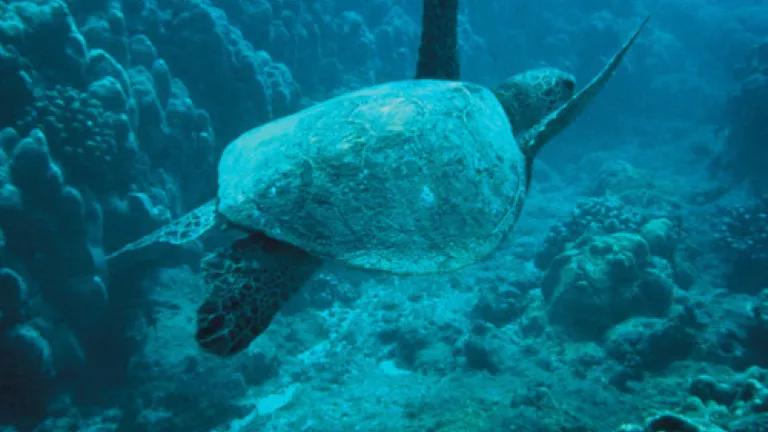Explaining Extinction: Why the Interior Appropriations Bill's Extinction Rider Is So Bad

Have you ever tried to explain extinction to a kid? It’s not easy. You’ll inevitably get questions like: “There isn’t even one?” “Couldn’t they come back some day?” “So I won’t ever get to see one?” They just can’t fathom that something could be completely erased from nature.
I can see where they’re coming from—the permanence of extinction is hard to wrap your head around. And it’s what makes it so disturbing that the GOP is messing with a law that prevents extinction in a must-pass budget bill. Indeed, the 2012 House Interior Appropriations bill contains a rider that would bar all new listings of endangered species and critical habitat designations (p. 8), but allow the delisting and downlisting of species. While Rep. Dicks (D-WA) attempted to strike this harmful provision during the Appropriations Committee markup yesterday, his amendment failed by a vote of 23-26 (notably, 3 Republicans – Reps. Dent (R-PA), Frelinghuysen (R-NJ), and Wolf (R-VA) – crossed party lines to support endangered species). Next stop: a vote by the full House.
In defending the extinction rider, Republicans claim that they’re just trying to modify the Endangered Species Act to make it more effective and more manageable for the Fish and Wildlife Service to implement. Then why does the provision prevent any new species from being protected and prohibit the Fish and Wildlife Service from doing its job? Call me crazy, but that sounds like an attempt to make the Act as ineffective as possible!
Members supporting the extinction rider don’t think enough species are being recovered under the Endangered Species Act. But species driven to the brink of extinction (which is essentially what it takes to receive protection under the Act), aren’t going to recover overnight. Instead, it takes time and hard work. Since the Endangered Species Act has only been around since 1973, most listed species haven’t been protected long enough to recover to the point of delisting. However, thanks to the Act, most of them now have stable populations, which is a huge accomplishment!
Photo Courtsey of Fish and Wildlife Service
Republicans also claim that this provision will save money. Wrong again! Instead, barring FWS from designating critical habitat for currently listed species would nullify the most effective means of endangered species protection, leading to prolonged recoveries that will cost taxpayers more money in the long run. Further, preventing listings and critical habitat designations will lead to the extinctions of species that provide us with quantifiable benefits, such as pest control that reduces pesticide costs for farmers.
Obviously, Representatives supporting this terrible rider are listening to oil companies, developers, and corporate polluters—not the American public, the vast majority of which love wildlife. A Harris Interactive Poll conducted this year found that Americans strongly support the Endangered Species Act. Indeed, 92% of respondents agreed that decisions about wildlife management and which animals need protection should be made by scientists—not politicians. Further, 90% agreed that the Endangered Species Act has helped hundreds of species recover from the brink of extinction. Plus, every year, Americans spend about $18 billion just to watch wildlife.
Kids don’t understand extinction because it’s just so horrible. On the other hand, politicians don’t understand just how horrible it is. We must continue to emphasize to them that once these plants and animals are gone, we can’t bring them back. And we must remind them that if this provision passes, we’re going to have a lot of explaining to do.




